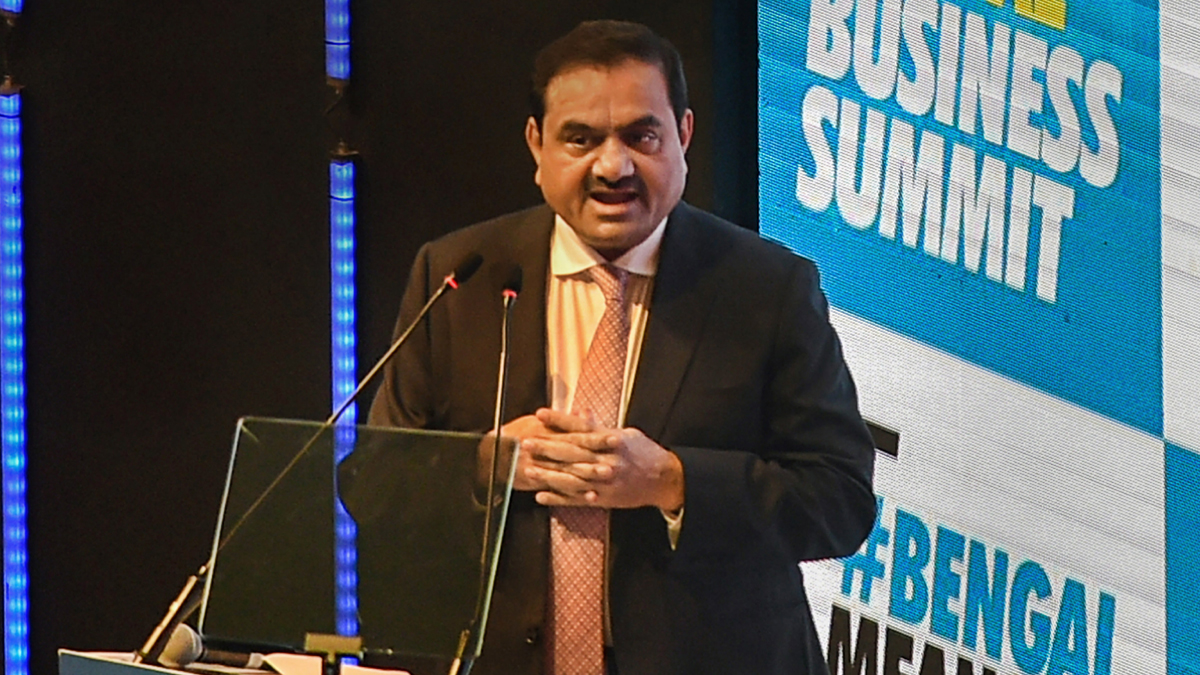India’s economy, which took 58 years to reach a trillion-dollar size every 12 to 18 months, will add an equivalent amount to its GDP, according to Asia’s richest man, Gautam Adani, who also predicted that by 2050, India will have overtaken the United States as the second-largest economy in the world.

Conversing at the 21st World Congress of Accountants in this city, he claimed that several presumptions had been challenged by several international problems, including the notions that Russia would be forced to accept a less global role and that secular ideals are universal. Therefore, China should also adopt western democratic principles.
According to him, the notion of a unipolar or bipolar world of superpowers that might intervene and stabilize global environments has been disproved by this multidimensional catastrophe.
He asserted that a superpower must be both a vibrant democracy and agnostic to the notion that “there is no one universal model of democracy.”
He declared that capitalism faced its strongest opposition ever since it promotes growth at the expense of a society’s social fabric.
The 60-year-old Adani claimed that the fundamentals of India’s expanding economy may have come into play and that the country’s ability to implement various structural reforms in the political and administrative systems has been made possible by a majority administration.
We needed 58 years to reach our first trillion in GDP, 12 years to reach the second trillion, and only five years to reach the third trillion.
Given the speed at which the government has been implementing a vast array of concurrent social and economic reforms, he predicted that India would start by increasing its GDP by a trillion dollars every 12 to 18 months within the next ten years. It will put us on track to have a USD 30 trillion GDP and a USD 45 trillion stock market capitalization by 2050.
At 3.5 trillion USD, India has the world’s fifth-largest gross domestic output (GPD). In contrast, the US has a USD 23 trillion GDP and a USD 45–50 trillion stock market value.
The only primary country on a path to becoming a high-income nation without surrendering its democracy and diversity, he claimed, is a country that was crushed and drained by its colonial masters but is now poised for exceptional prosperity.
We will have the third-largest economy in the world by 2030, and we will overtake that position to become the second-largest economy by 2050.
By 2050, India’s share of the global GDP in purchasing power parity (PPP) will be close to 20%.
The success of India in terms of both economic growth and democracy has never been matched by any other country. He asserted that the groundwork has already been done to create a brand-new, resilient India. The time to identify as an Indian, reside in India, and hang out with Indians is now more than ever.
With a population of 1.6 billion and a per capita income of USD 16,000—more than 700% higher than the per capita income today—Adani projected that India’s median age will be just 38 years in 2050.
With growing international trust in India, FDI will surpass one trillion dollars.
India added a unicorn every nine days in 2021. It carried out an astounding 48 billion real-time financial transactions, the most recorded worldwide. It was six times more than the sum of the United States, Canada, France, and Germany. He added that VC funding would surpass USD 50 billion this year, representing a 50x acceleration in 8 years.
India can become a net exporter of green energy by 2050; according to Adani’s ports-to-energy conglomerate, it will invest USD 70 billion in a new energy value chain over the next ten years.
Stronger regulations are required, according to him, to compel companies to develop a social structure that respects the core of our culture and complies with our national requirements. Greater mandates will be required as domestic businesses and multinational corporations profit from India’s sizable market.
India cannot be seen as a place that is only used to make and extract money from outside its borders. I argued that the multipolar world’s superpowers must understand that there is no one-size-fits-all approach to implementing democracy.

No Responses